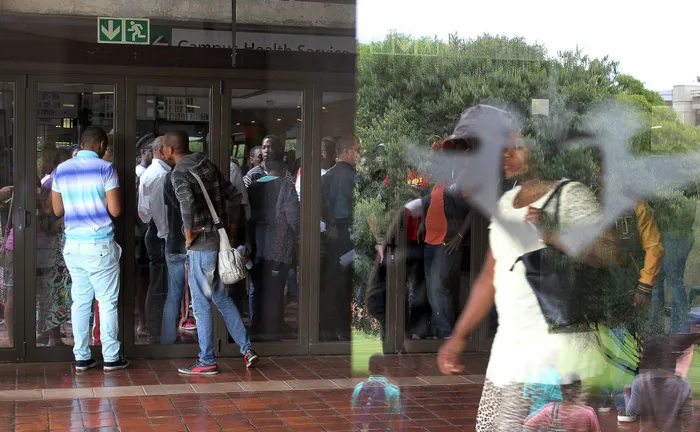Saus threatens ‘action’ over funding decisions

The South African Union of Students (Saus) says the National Student Financial Aid Scheme’s ( NSFAS) decision to only release their funding decisions after February 6 will cause further delays for first time entering and returning students. Picture: ANA Archives
Cape Town - The South African Union of Students (Saus) says the National Student Financial Aid Scheme’s ( NSFAS) decision to only release their funding decisions after February 6 will cause further delays for first time entering and returning students.
The organisation expressed this concern on Wednesday when it briefed the media about the increase in allowances at tertiary institutions.
It followed after Higher Education minister Blade Nzimande gave a breakdown on Tuesday of allowance increases that have been affected for universities.
Where universities provide accommodation and catering students will receive a R5460 learning materials allowance and an accommodation allowance capped at R61500.
“University managed self-catering students will receive a learning materials allowance to the value of R5460, R16500 per annum living allowance and accommodation allowance capped at R45000.
“ Let me indicate that our living allowance increment across the board will be R1 650 per month, which is a 10% increment as compared to the 2022 figure. Students living with relatives will receive a learning materials allowance of R5460, and R16500 per annum living allowance,” said Nzimande.
Private off campus accredited accommodation students will receive a learning materials allowance of R5 460, R16500 per annum living allowance and an accommodation allowance capped at R45000.
Saus president Yandisa Ndzoyiya said the above inflation was necessary after three years of no increase.
“Initially the department with NSFAS had proposed and approved a 5% increase in the food allowances, but after rigorous and militant deliberations, we are more than delighted to announce that we have been able to force the government and NSFAS to increase food allowance by 10%, which effectively is R150 a month.
Although a significant win for the struggles we’ve waged, this 10% increase isn’t enough on the backdrop of the fact that allowances were last increased in 2018,” said Ndzoyiya.
Ndzoyiya said February 6 was unnecessarily late to release funding decisions by NSFAS for both first time entering students and returning students.
“We believe this will also add to further delays in concluding registrations and commencing with teaching and learning swiftly.
“We must make it clear that any delays of funding decisions post the February 6 will be deemed as an insult and a deliberate frustration of the registration period and will in turn be met with the necessary actions,” he said.
Ndzoyiya was speaking at a virtual media briefing on Wednesday regarding the high education sector’s plans for the 2023 academic year.
He also expressed concern regarding lack of capacity from higher learning institutions to absorb qualifying pupils as there were less than 250 000 spaces available in both universities and TVET colleges.
About 720 000 learners passed their matric exams last year. There was still the 2021 backlog. There has been little to no detail on how to tackle the space problem.
Cape Times
Related Topics: